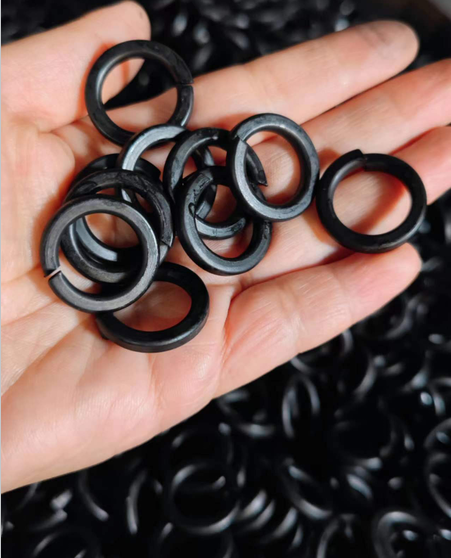typical drywall screw size manufacturer
Understanding Typical Drywall Screw Sizes and Their Manufacturer Specifications
When it comes to drywall installation, selecting the right screw size is crucial for achieving a secure and long-lasting finish. Drywall screws, specifically designed for attaching gypsum boards to wooden or metal studs, come in various sizes and types. Understanding these specifications can help both professionals and DIY enthusiasts ensure that their projects are completed effectively.
Types of Drywall Screws
Drywall screws are typically categorized based on their thread design and the type of head they feature. The three primary types include
1. Coarse-thread screws Ideal for attaching drywall to wood. They have deeper threads, which provide a stronger grip in softer materials.
2. Fine-thread screws Generally used for metal studs, these screws have a tighter thread pattern and reduce the risk of stripping the metal.
3. Self-drilling screws These screws come with a drilling tip that allows them to penetrate metal without needing a pilot hole, making them efficient for projects involving metal studs.
Common Sizes
typical drywall screw size manufacturer

Drywall screws vary in length, typically ranging from 1 inch to 3 inches. The most common sizes used in residential drywall installation include
- 1 inch Suitable for attaching 1/2 inch drywall to wooden studs. - 1 1/4 inch Often recommended for standard 1/2 inch drywall and provides a good compromise for various applications.
- 1 5/8 inch and 2 inch Commonly used for thicker drywall or when additional holding power is required.
The diameter of the screws is generally measured in gauge. The most commonly used gauges for drywall screws are 6 and 8, with 6 being suitable for most standard applications.
Manufacturer Specifications
Different manufacturers may have slight variations in screw dimensions, coatings, and designs. It is essential to refer to the manufacturer’s specifications when selecting screws for a project. For example, some manufacturers may offer drywall screws with a black phosphate finish to resist corrosion, while others may provide zinc-plated options for added durability.
Conclusion
Choosing the right drywall screw size plays a pivotal role in the efficiency and success of a drywall installation. By understanding the types, common sizes, and manufacturer specifications, you can ensure that your drywall is securely fastened, leading to a professional-grade finish. Always consider the material of the studs and the thickness of the drywall to select an appropriate screw size. Additionally, when in doubt, refer to the guidelines provided by the screw manufacturer to make an informed decision. This attention to detail can save you time and effort, ultimately resulting in a smoother, more durable installation.
-
Top Choices for Plasterboard FixingNewsDec.26,2024
-
The Versatility of Specialty WashersNewsDec.26,2024
-
Secure Your ProjectsNewsDec.26,2024
-
Essential Screws for Chipboard Flooring ProjectsNewsDec.26,2024
-
Choosing the Right Drywall ScrewsNewsDec.26,2024
-
Black Phosphate Screws for Superior PerformanceNewsDec.26,2024
-
The Versatile Choice of Nylon Flat Washers for Your NeedsNewsDec.18,2024










